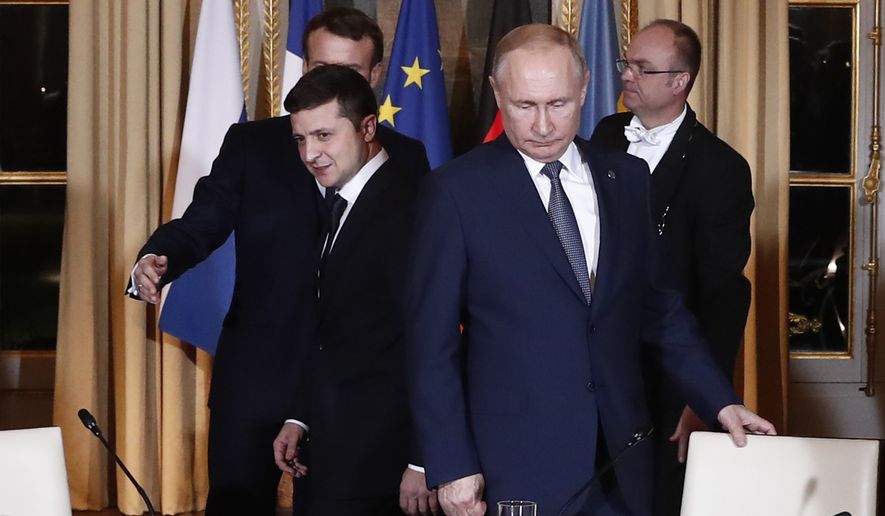The U.S. and Europe on Saturday kicked a number of Russian banks off the SWIFT banking system, cutting the country off from a swath of international financial transactions in the strongest sanction imposed so far for its invasion of Ukraine.
The nations also imposed major restrictions on Russia’s central bank.
In a joint statement, the U.S. European Commission, Canada, United Kingdom, France and Germany said the move was necessary to hold Russia accountable for the full-scale attack on Ukraine.
A senior administration told reporters the move was “an unprecedented act of global cooperation.”
The moves represent a marked shift in strategy for the West, which had imposed sanctions on specific people and businesses to pressure Russia. Now, it appears that Western nations are taking more severe steps that impact the country as a whole.
Cutting off Russia’s access to SWIFT was viewed as the “nuclear option of sanctions” and many European countries were reluctant to approve because it would make it harder to buy Russian oil and gas.
SEE ALSO: U.S. sanctions Putin personally for Ukraine invasion
Blocking Russia from SWIFT, which stands for the Society for Worldwide Interbank Financial Telecommunications, required the agreement of all EU’s 27 members, the United States and Canada.
Cutting off Russia’s access to SWIFT was viewed as the “nuclear option of sanctions” and many European countries were reluctant to approve because it would make it harder to buy Russian oil and gas.
“We are committed to ensuring that selected Russian banks are removed from the SWIFT messaging system,” the statement said. “This will ensure that these banks are disconnected from the international financial system and harm their ability to operate globally.”
SWIFT high-security messaging network that connects thousands of banks around the globe. By banning Russia from SWIFT, the countries severely restrict its access to financial markets. It would also make it difficult for Russia to do business with other countries and at least temporarily stop shipments of metals, oil, gas and other commodities.
In 2012, Iran lost access to SWIFT as part of the sanctions over its nuclear program. As a result, Iran lost half their oil export revenues and 30% of its foreign trade.
Ukraine has appealed to the U.S. and Europe to boot Russia from SWIFT after Russia invaded Ukraine. Some countries in Europe have resisted, including Italy and Germany, although the idea received support from the United Kingdom.
President Biden said Thursday that keeping Russia out of SWIFT is “always an option,” but “right now, that’s not the position that the rest of Europe wishes to take.”
In an unprecedented move, the U.S., Canada and the European allies also penalized Russia’s sanction bank, including freezing its foreign reserves.
Russia’s central bank has more than $630 billion in foreign exchange reserves in banks in cities in New York, London and Frankfurt. The senior administration official said the sanction would impact all of those reserves, putting tremendous pressure on Russia’s economy.
That could spur domestic unrest in Russia such as a bank run, create panic among Russian businesses or crater the value of a ruble.
“Without being able to buy the ruble from Western financial institutions,” the official said. “For example, Putin’s central bank will lose the ability to offset the impact of our sanctions. The ruble will fall even further, inflation will spike and the central bank will be left defenseless.”
• Jeff Mordock can be reached at jmordock@washingtontimes.com.




Please read our comment policy before commenting.